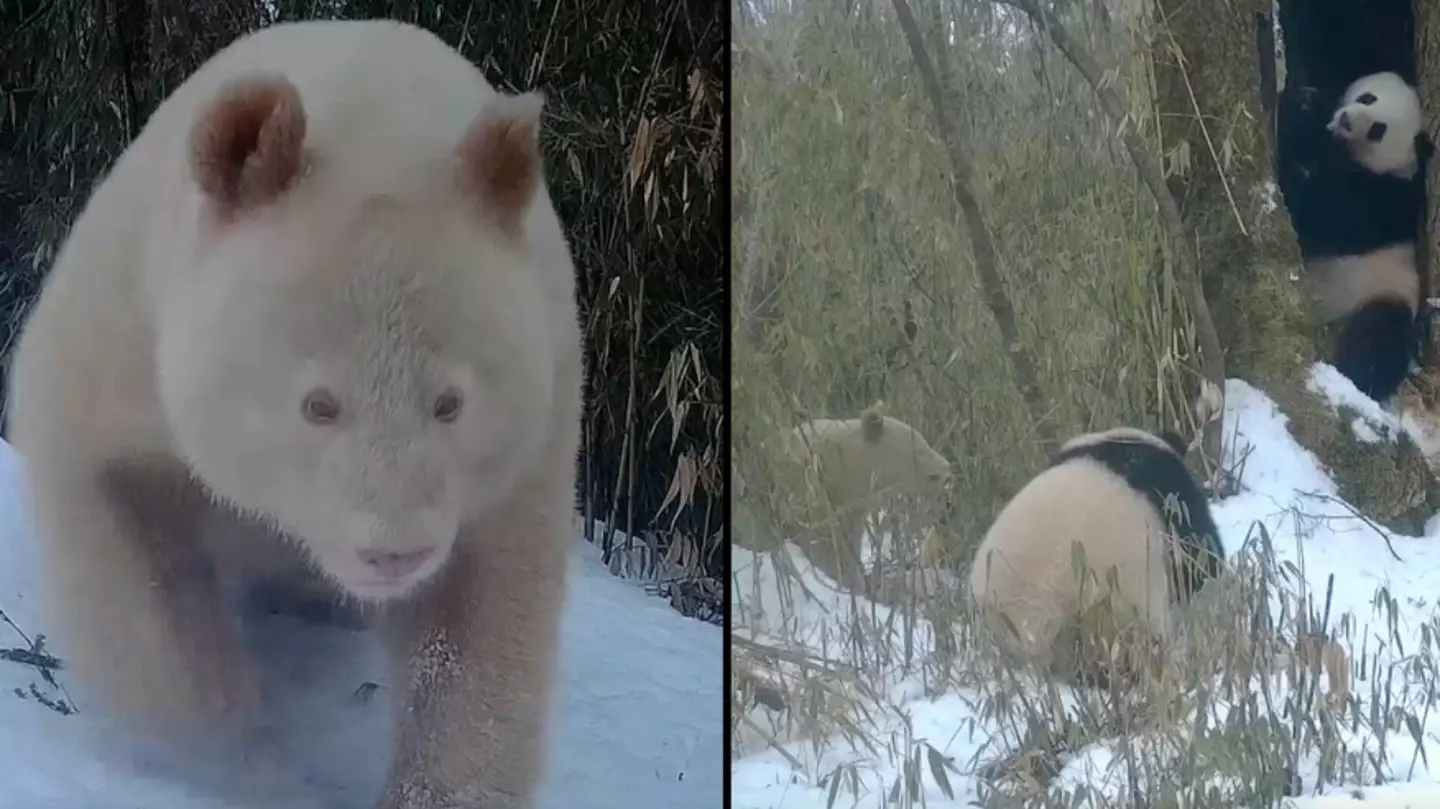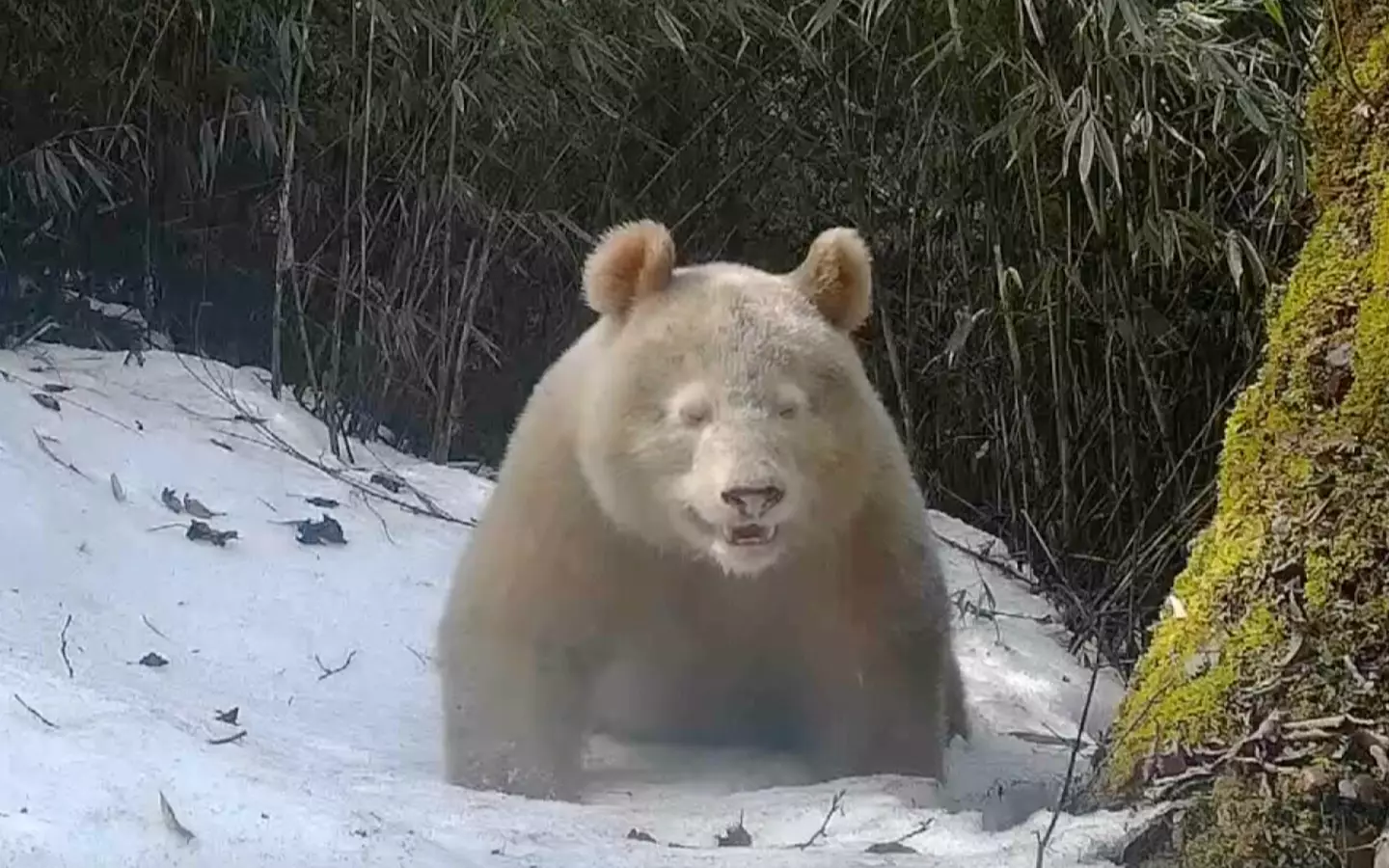
Authorities in China have shared a rare glimpse of the world's only all-white panda.
The Wolong National Nature Reserve shared the clip of the ultra rare giant panda for the first time since he was born in 2019.
The reserve, located in Chengdu in China's south-western province of Sichuan, unveiled the cub with the added revelation that not only had a baby panda been born, but the adorable animal was also born with albinism.
Advert
Typically, pandas are coloured with black splotches of fur adorning their white coat.
This cub, however, was born without any black spots.
He also has the telltale mark of unique red eyes, meaning the wee bairn has no or very little melanin pigment in their skin, hair and eyes.
The all-white giant panda is the only one of his kind on Earth.
So, boys and girls, when your parents tell you that it's cool to be unique, this is what they mean.
Advert
Reserve management authorities at Wolong National Nature Reserve said they believe the nearby female in the footage may have been the cub's mother, which is why she remained calm.
When pandas are born, they are about the size of a stick of butter,
That's nearly 0.001 per cent the size of their momma bear.

Adult females can tip the scales at about 200 pounds (90 kilograms).
Advert
Males tend to be a bit chonkier, maxing out at about 300 pounds (136 kilograms).
Senior engineer at the China Conservation and Research Centre for Giant Pandas Wei Rongping confirmed the ultra-rare white panda is now nearly fully grown.
"The cub in the footage is about one to two years old, and the all-white panda is nearly the size of an adult," he told The Straits Times.
"At the end of February, wild pandas in Wolong have entered the oestrus season, during which the female pandas with cubs can be very aggressive when an adult panda approaches or invades."
"This female panda was extremely calm and did not conform to the general rule. One possibility is that the female panda is the mother of the all-white panda."
Advert
Giant pandas are treasured in China and predominantly live in the nation's southwest, where they chow down on a diet that is made up almost entirely of bamboo.
According to the WWF, there are around 1,864 pandas in the wild.
In 2017, the conservation organisation revealed wild pandas are now rebounding in population numbers.
The rare yet adorable bears were upgraded from 'endangered' to 'vulnerable' on the global list of species at risk of extinction, after a spike in panda numbers of nearly 17 per cent over the past decade.
Topics: Animals